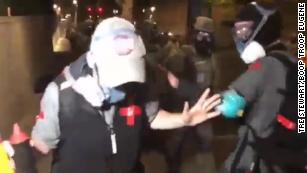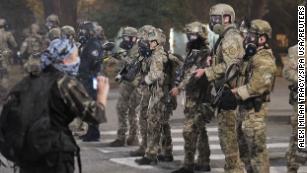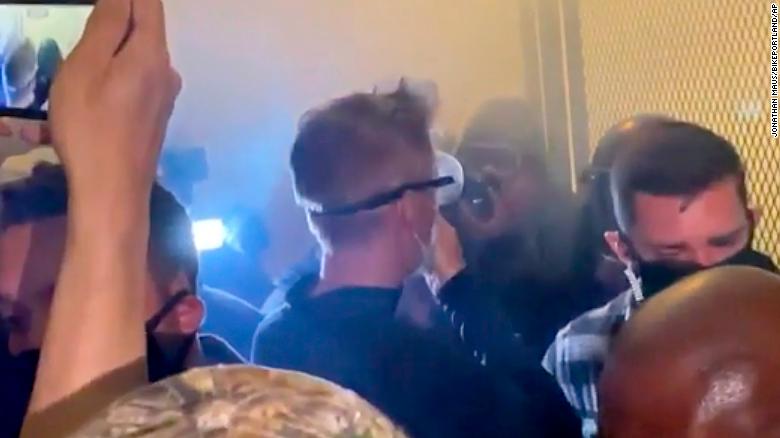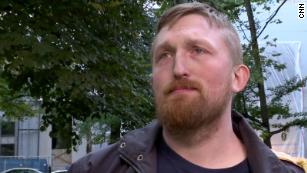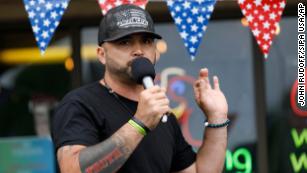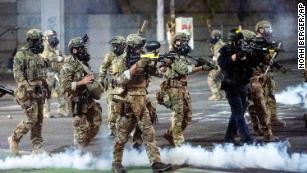President Donald Trump’s bid to exclude undocumented immigrants from a census tabulation used to determine how many U.S. representatives are apportioned to each state is unworkable and unconstitutional, according to civil rights groups and several American cities and counties suing the administration.
“It can’t be done,” Sarah Brannon, managing attorney with the American Civil Liberties Union’s Voting Rights Project, told VOA, adding that the citizenship determination Trump is mandating would be hard to ascertain and “not very reliable.”
Another civil liberties group, Common Cause, filed a lawsuit Thursday challenging Trump’s directive, joined by cities in New Jersey and Georgia. Later in the day, Arlington County, Virginia, said it was joining the suit.
“The Constitution requires an accurate count of our population every 10 years,” Arlington County Board Chair Libby Garvey said in a statement. “We must have an accurate count of everyone living in Arlington and refuse to allow this unlawful effort to scare people and suppress the census count of our immigrant community.”
Others are applauding the executive order. Alabama’s Attorney General Steve Marshall called it a “victory” for the state.
“When the states’ congressional seats and Electoral College votes are divided up, representation should be based on those people who reside in their states and this country lawfully,” Marshall said.
The Supreme Court last year blocked the Trump administration from including a citizenship question on the 2020 census.
In an executive order issued earlier this week, Trump directed Commerce Secretary Wilbur Ross, who oversees the U.S. Census Bureau, to present data as to the number of undocumented people counted by the census. The administration would then exclude the undocumented from each state’s census count for the purpose of determining whether a state loses, gains or retains members in the House of Representatives, a process that occurs every 10 years.
The executive order reads: “For the purpose of the reapportionment of Representatives following the 2020 census, it is the policy of the United States to exclude from the apportionment base aliens who are not in a lawful immigration status under the Immigration and Nationality Act.”
The U.S. Constitution makes no mention of citizenship in relation to the census or congressional apportionment, a point underscored by law professor Ilya Somin, who teaches at George Mason University in Virginia.
“Section 2 of the 14th amendment specifically says that representatives shall be apportioned among the several states according to their respective numbers, counting the whole number of persons in each state,” Somin, a self-described libertarian, told VOA. “I think the overwhelming likelihood is the courts will rule against [Trump’s directive] because it is blatantly unconstitutional.”
Population subset not counted
On Tuesday, the Trump administration argued the Constitution “does not specifically define which persons must be included for the purposes of apportionment and requires only that representatives be apportioned according to what has long been understood to mean the ‘inhabitants’ of each state.”
But Howard University Constitutional Law Professor Steven Jamar told VOA the argument the administration is using deals with a subset of people – such as tourists and business travelers – who, though they might be counted in the census, are not counted for apportionment purposes.
“There are some people who are not within the state on the date of the census. They are traveling or they're out of the country. … There are some people who are just tourists visiting the state from somewhere else. And those people have historically not been counted for apportionment purposes. … they’re generally not even counted in the census because they aren't resident in the state. But an immigrant, whether they're documented or not, is residing in the state,” Jamar said.
Trump, however, vowed to “collect all of the information we need to conduct an accurate census and to make responsible decisions about public policy, voting rights, and representation in Congress.”
Last year the Supreme Court blocked an attempt by the Trump administration to add a citizenship question for the first time in 60 years.
“It's not about who can vote. It’s not about citizenship. It's about whole persons residing in the state. So, the question is really just ‘Who's living there?’” Jamar said.
Conservatives agree with administration
The Heritage Foundation, a conservative think tank based in Washington, agrees with the administration’s directive, adding that Trump acted “firmly within his statutory authority to determine who are the ‘inhabitants’ of a state for purposes of apportionment.”
“The administration must now work diligently to collect and make available the data necessary to support and implement this substantial change, and hopefully this change can be implemented swiftly,” according to a statement.
In 2018, the state of Alabama filed litigation against the U.S. Census Bureau and argued the current system of apportioning congressional seats gives an unfair electoral advantage to states with more undocumented immigrants and that Alabamians would likely lose a congressional seat and an Electoral College vote if undocumented immigrants were counted. The lawsuit is currently pending before a federal court.
The Pew Research Center in its latest report showed that if unauthorized immigrants were excluded from the apportionment count, California would lose two seats instead of one, Florida would gain one instead of two, and Texas would gain two instead of three. Alabama, Minnesota and Ohio would keep a seat that they would have lost if apportionment were based only on total population change.
The report, released Friday, is based on projections of Census Bureau 2019 population estimates.
“In addition to these states, 11 more would gain or lose seats based on population change alone, no matter whether unauthorized immigrants are included or excluded," according to the analysis.
Gathering immigration data
The administration has not disclosed how it would identify undocumented immigrants. The questions in the census questionnaire does not include or require respondents to disclose their immigration status or citizenship status.
Terri Ann Lowenthal, a census consultant who once served as the staff director of the former House oversight subcommittee for the census, said all the data available on the undocumented immigrant population are estimates.
“We have some sense, right, we do have states that provide benefits to undocumented persons and so they have some administrative data, which give us some sense of the size of the population. But again, having said that, the apportionment formula for seats in Congress is an extraordinarily complex mathematical formula, I always say, that about five mathematicians in the country can explain,” Lowenthal said.
She is more concerned about the heightened fear the directive creates in immigrant communities.
“I'm concerned that this fear will affect participation in the rest of the census. The census still has to count more than 35 percent of households in this country, in the remaining field operation,” Lowenthal said.
This week, the Census Bureau started to visit households that have yet to respond. The bureau has also reported that so far 62 percent of U.S. households had completed their census forms.
The first results were due December 31 but because of the coronavirus outbreak, the Census Bureau has delayed fieldwork, and some of these dates have changed. The agency has also asked Congress to extend the legal deadline to publish data.
Stacey Abrams, a Georgia Democratic politician and voting rights activist, told VOA that people on both sides of the aisle need to worry about this directive because when the population is not accurately counted, everyone suffers. In 2019, Abrams launched a nonprofit to ensure that “hard-to-count” populations are recorded during the 2020 census.
Abrams emphasized the lack of legality to gather immigration status data.
“The census cannot inquire about the citizenship of any person. It's not on the form. They can't ask it out loud. And if you get that question, close the door and call the Census Bureau,” she said.




